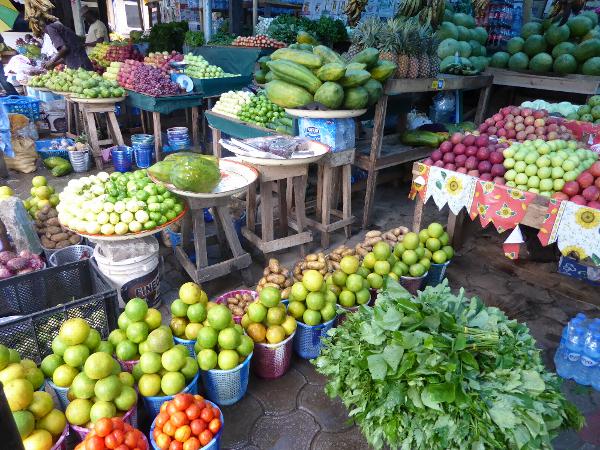Nigeria’s GDP Contracts Further By -1.3%
Nigeria’s economy further shrank in the fourth quarter of 2016 as Gross Domestic Product (GDP) contracted by -1.3 per cent in 2016 from N18.53 trillion in Q4 2015 to N18.29 trillion in Q4 2016 due to a decline oil prices. This was however better than the -2.24 per cent decline recorded in the third quarter of the year.
Year on year, the economy contracted by -1.51 per cent indicating real GDP of N67.98 trillion for the year, while quarter on quarter, real GDP increased by 4.09 per cent, partly reflecting seasonal factors as well as a rise in the general price level according to latest report by the National Bureau of Statistics (NBS).
The NBS in its report said the “contraction reflects a difficult year for Nigeria, which included weaker inflation-induced consumption demand, an increase in pipeline vandalism, significantly reduced foreign reserves and a concomitantly weaker currency.”
Oil sector contribution to the GDP dropped to 8.42 per cent in 2016, compared to 9.61 per cent in 2015 as the sector contracted by -12.38 per cent year on year. Oil production was estimated to be 1.833mb/day, compared to 2.13mb/day in 2015. This reduction according to the NBS is “largely been attributed to vandalism in the Niger Delta region.”
The -12.38 per cent contraction in the oil sector was however an improvement relative to the previous quarter, when the sector declined by -22.01 per cent, but nevertheless was a more severe decline than in the fourth quarter of 2015, when a contraction of -8.23 per cent was recorded. Quarter-on-Quarter, real oil GDP grew 8.07 per cent.
The non-oil sector declined by -0.33 per cent in real terms in the fourth quarter of 2016. This was 0.36 per cent points lower than growth of 0.03 per cent recorded in Q3 2016, and 3.46 per cent points lower than the 3.14 per cent growth recorded in Q4 2015.
The NBS said “given that the growth rate was stronger than in the oil sector, the non-oil sector increased its share of GDP to 92.85 per cent from 91.94 per cent in the fourth quarter of 2015. The sector to weigh on non-oil growth the most was Real Estate, which declined by -9.27 per cent and contributed to -0.77 points to year on year growth in total real GDP. However, Manufacturing, Construction and Trade also made significant downwards contributions, ameliorated slightly by continuing strong growth in Agriculture, especially Crop Production.”
Chief Economist Africa at Standard Chartered Bank, Razia Khan stated the “very shallow contraction in non-oil GDP growth in Q4 2016, raises hope of a more meaningful recovery in non-oil GDP in Q1 2017, buoyed both by improved budget spending and some improvement in FX availability.”




